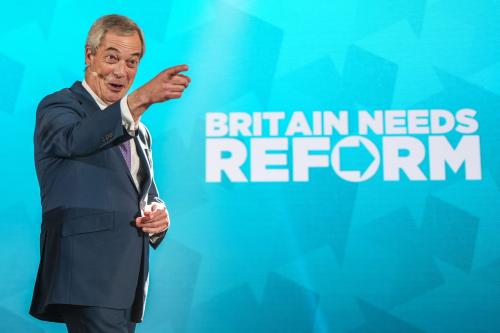A seemingly classic morality play has unfolded in Moscow. Mikhail Khodorkovsky, Russia’s richest man and head of its largest oil company, Yukos, was arrested Oct. 25 on charges of fraud and tax evasion. The main protagonists were cast in black and white. Good—democracy, private enterprise and pro-business types in the Kremlin—was pitted against Evil—authoritarianism, re-nationalization and the so-called siloviki, President Vladimir V. Putin’s KGB hangers-on.
The audience consensus was that Evil won—that Putin was turned to the dark side by KGB siloviki who wanted to quash democratic forces on the eve of Russia’s December parliamentary elections and again exert state control over the economy. His chief of staff, Alexander Voloshin, quit in protest. In a second act this week, Khodorkovsky resigned as head of Yukos.
From Putin’s perspective, though, things were never so black or white. No one won. He did what he had to do to rein in a wayward oligarch. The morality play was an unfortunate deviation from a script that Khodorkovsky had already thrown out the window.
Putin has consistently made it clear that private methods and incentives are superior to public ownership and management. To jump-start Russia’s economy, he has balanced market efficiency with state intervention to set strategic priorities.
The energy sector has been central in his calculations. Russia’s abundance of hydrocarbons is its greatest economic and strategic asset, the family jewels. In Kremlin strategies, oil and gas revenues—which provides one-third of all tax revenues—will be tapped in the future to revitalize Russia’s moribund manufacturing industry. Meanwhile, Putin needs oligarchs to manage energy assets effectively, not just in the interests of owners and shareholders but also in the interests of the state.
Khodorkovsky stole Yukos from the state in the free-for-all of Russian privatization in the 1990s. But, from Putin’s point of view, he had all the right qualifications to run it. Although ruthless and self-interested, he was well connected to Kremlin operatives from his days as a young Communist activist. He knew how to take advantage of the devaluation of the ruble and a surge in world oil prices to increase production and turn Yukos into a major player. He set the tone for a new wave of Russian business, becoming the poster boy for good corporate governance and new corporate philanthropy. He supported the development of civil society at home, and he bought attention, if not respect, abroad with savvy public relations and carefully selected giving to prestigious institutions.
Khodorkovsky’s stellar performance boosted the Russian stock market, in which Yukos and five other big companies account for more than 90% of shares traded. In return, Khodorkovsky made $8 billion.
His personal success even made Russia look good—it was seen as a country where vast fortunes could be made. For a while, he was the model of the “good” oligarch. He enriched himself and Russia, and he proved that Kremlin capitalism could work.
Unfortunately, Khodorkovsky lost sight of Putin’s parameters. He seemed to have forgotten that he had seized Yukos by nefarious means and managed it at the state’s pleasure. He referred to Yukos as his asset to use as he pleased.
At a public meeting at the Carnegie Endowment in Washington only two weeks before his arrest, Khodorkovsky declared: “Russian society is going to have to get used to the fact that people can do whatever they feel like doing with their money.”
He spoke of selling Yukos and moving on to other things, including politics. He flirted with U.S. oil companies Exxon and Chevron as potential buyers. Instead of acquiring more assets for Yukos and Russia, he seemed willing to sell out for personal gain.
In Putin’s terms, Khodorkovsky let him down. And in spite of repeated pressure, including the arrest of close associates, Khodorkovsky never got the message. He kept on upping the ante until Putin had to intervene, seizing him and a controlling portion of Yukos shares.
Still, the reassertion of such draconian state control is a genuine setback for Putin. And re-nationalizing Yukos or any other major privatized company would be an inferior alternative to his innovative state capitalism approach. Although the state’s interests are paramount in Putin’s view of the Russian economy, he has always preferred persuasion over force.
Now Putin has a dilemma. He does not want to change course, but he backed the wrong horse with Khodorkovsky.
Putin’s forceful intervention has created a political martyr and upheaval in the economy. He can counter Khodorkovsky’s political appeal, and the economic upheaval will probably subside, but, unfortunately, Russia doesn’t boast a large stable of capable oligarchs. Putin does not have many others he can trust to manage the family jewels.
The Brookings Institution is committed to quality, independence, and impact.
We are supported by a diverse array of funders. In line with our values and policies, each Brookings publication represents the sole views of its author(s).



Commentary
Op-edMore Than a Moscow Morality Play
November 5, 2003